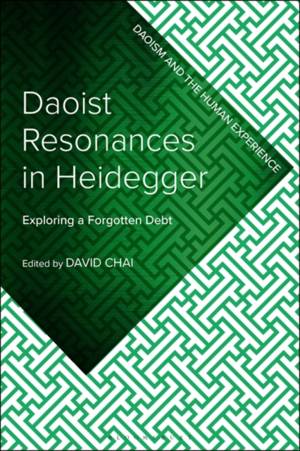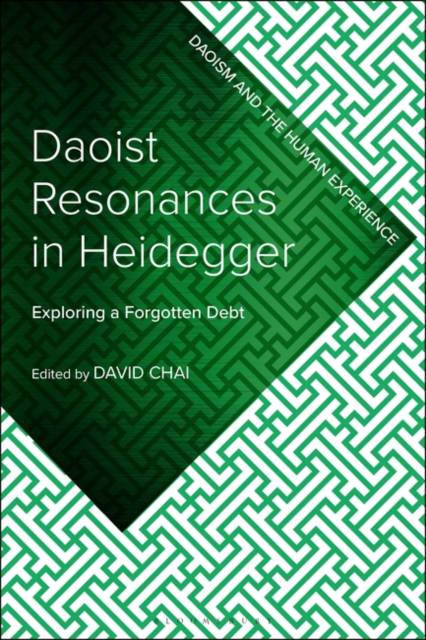
- Afhalen na 1 uur in een winkel met voorraad
- Gratis thuislevering in België vanaf € 30
- Ruim aanbod met 7 miljoen producten
- Afhalen na 1 uur in een winkel met voorraad
- Gratis thuislevering in België vanaf € 30
- Ruim aanbod met 7 miljoen producten
Zoeken
Daoist Resonances in Heidegger
Exploring a Forgotten Debt
€ 220,45
+ 440 punten
Omschrijving
East Asian imagery resonates throughout Martin Heidegger's writings. In this exploration of the connections between Daoism and his thought, an international team of scholars consider why the Daodejing and Zhuangzi were texts he returned to repeatedly and the extent Heidegger adhered to Daoism's core doctrines.
They discuss how Daoist thought provided him with a new perspective, equipping him with images, concepts, and meanings that enabled him to continue his questioning of the nature of being. Exploring the environment, language, death, temporality, aesthetics, and race from the groundlessness of non-being, oneness, and the Way, they illustrate how these themes reverberate with ontological, spiritual, and epistemological potential.
A lesson in the art of Daoist and cross-cultural ways of thinking, this collection marks the first sustained analysis of the influence of classical Daoism on a major 20th-century German philosopher.
They discuss how Daoist thought provided him with a new perspective, equipping him with images, concepts, and meanings that enabled him to continue his questioning of the nature of being. Exploring the environment, language, death, temporality, aesthetics, and race from the groundlessness of non-being, oneness, and the Way, they illustrate how these themes reverberate with ontological, spiritual, and epistemological potential.
A lesson in the art of Daoist and cross-cultural ways of thinking, this collection marks the first sustained analysis of the influence of classical Daoism on a major 20th-century German philosopher.
Specificaties
Betrokkenen
- Uitgeverij:
Inhoud
- Aantal bladzijden:
- 280
- Taal:
- Engels
- Reeks:
Eigenschappen
- Productcode (EAN):
- 9781350201071
- Verschijningsdatum:
- 2/06/2022
- Uitvoering:
- Hardcover
- Formaat:
- Genaaid
- Afmetingen:
- 156 mm x 234 mm
- Gewicht:
- 557 g

Alleen bij Standaard Boekhandel
+ 440 punten op je klantenkaart van Standaard Boekhandel
Beoordelingen
We publiceren alleen reviews die voldoen aan de voorwaarden voor reviews. Bekijk onze voorwaarden voor reviews.







